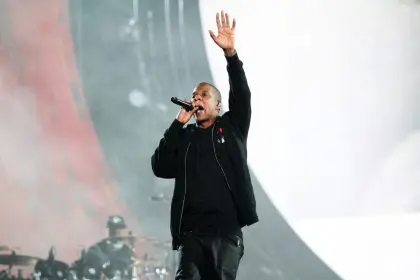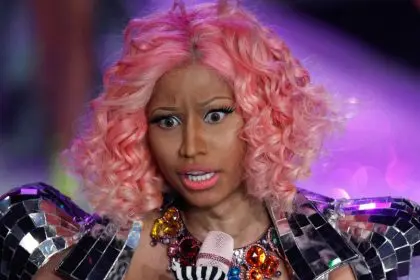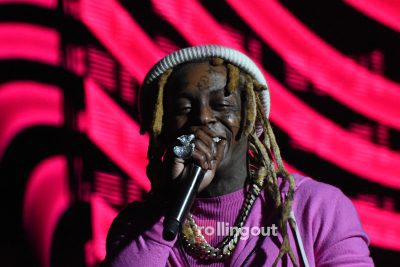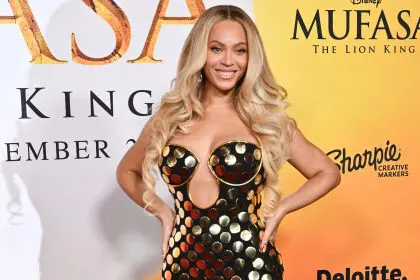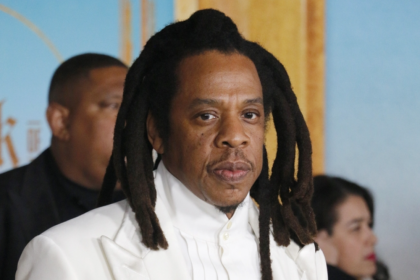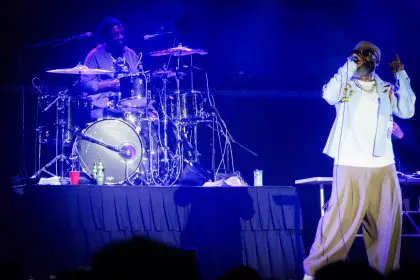 Jay-Z is the epitome of the American dream. He’s a man born of the slums who, through perseverance, sacrifice and skill, worked his way to the top of the economic totem pole. So when HuffPost’s Black Voices decided to do an ongoing video series, “The Tanning Effect,” to coincide with the release of marketing executive Steve Stoute’s new book, The Tanning Of America: How the Culture of Hip-Hop Rewrote the Rules of the New Economy, it came as no surprise that the legendary emcee was called in for the first episode to discuss the impact of his beloved music genre on American culture.
Jay-Z is the epitome of the American dream. He’s a man born of the slums who, through perseverance, sacrifice and skill, worked his way to the top of the economic totem pole. So when HuffPost’s Black Voices decided to do an ongoing video series, “The Tanning Effect,” to coincide with the release of marketing executive Steve Stoute’s new book, The Tanning Of America: How the Culture of Hip-Hop Rewrote the Rules of the New Economy, it came as no surprise that the legendary emcee was called in for the first episode to discuss the impact of his beloved music genre on American culture.
Talking with show host Stoute about the success of his and Kanye West’s Watch The Throne album, which debuted at No. 1 one in 23 countries, Jay-Z explained that hip-hop is so popular worldwide because, like jazz, it strikes a chord with the hearts of its global listeners.
“The impact of hip-hop has always been a global thing, I think, almost in the way jazz was. In the early days of jazz, Quincy Jones and them were playing overseas before they were even allowed to play clubs in the South. So, hip-hop [was] that cultural thing where it wasn’t as many boundaries. So, hip-hop was this youthful music that didn’t have those boundaries outside of America. More specifically hip-hop had a voice. Jazz hit great notes and things like that but hip-hop spoke directly to the people, it spoke to their heart and how they were feeling,” said Jay.
For Jay-Z, who’s been in the hip-hop world well over a decade, paving the way for hip-hop’s current domination came not without its fair share of hurdles. But he finally realized the power of hip-hop’s global impact in 1998 when he, DMX, Method Man and Redman decided to hit the road together for the “Hard Knock Life” tour.
“It was the first time we were doing an all-rap lineup. I remember the first time we were trying to take this out, they were like, ‘You need an R&B act on the bill.’ They were really telling us that for insurance purposes and for the look of the thing. I was like, “No, we’re going to go out,’” explained Jay. “DMX had had two No. 1 albums that year. I had an album that year that sold five million copies. I’m like, ‘I think we can tour.’”
To Jay-Z’s surprise, when the tour got underway, he found that hip-hop music not only appealed to black listeners, but to white audiences as well.
“When we go to those concerts, it was like 80/20. It was like white people in the audience, the first thing at the hip-hop concert, like, just dominated it and this is this an all rap concert,” said Jay.
Jay-Z also spoke about his famous boycott of champagne maker Cristal in 2006 after they dismissed hip-hop’s numerous unpaid endorsements for the globally popular brand.
“Hip-Hop drove a lot of those sales. You’re promoting something you like…and it’s not even promoting it, you’re just talking about something you like,” explained Jay. “ And you’re an unpaid spokesman for this brand. You’re generating millions and millions of dollars for that brand and for that brand not to at least say thank you, it’s a huge slap in the face.”
The Tanning Of America: How the Culture of Hip-Hop Rewrote the Rules of the New Economy is currently on bookshelves nationwide. –nicholas robinson

